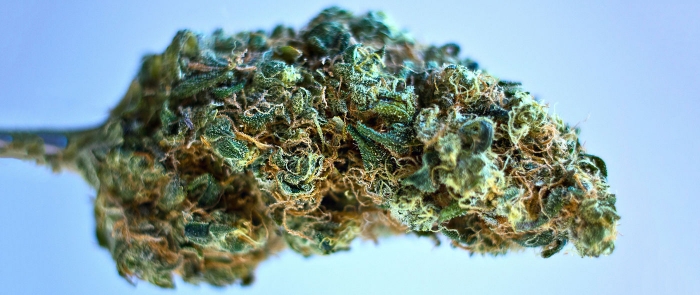You are here
Home 🌿 Cannabis Technology News 🌿 Why Genetically Modified Cannabis Probably Won't Be A Thing 🌿Why Genetically Modified Cannabis Probably Won't Be A Thing

Sadly, we probably won't see 100 percent THC nugs the size of watermelons anytime soon.
The future of the legal marijuana industry in the United States is as indeterminable as today’s weed is intoxicatingly potent. With legal marijuana laws springing up in states across the country, speculation of an eventual corporate presence in the cannabis industry is taking hold. And some think that when Big Agriculture enters the picture, with it will come strains of genetically modified marijuana.
“The cannabis industry should be aware that sooner rather than later, there will be big-ag at play in this industry,” Reggie Guadino of Berkeley, California-based Steep Hill Labs said to the Eureka Times-Standard.
Steep Hill Labs tests cannabis and marijuana products to provide different industry sectors with analytics and data on the legal dope currently on the Golden State market. And according to Guadino, Big Ag will likely begin to market said GMO weed soon.
“The future is not necessarily a bad thing in respect to genetics of cannabis. It’s a matter of understanding what you can do with it,” Guadino told the Eureka Times-Standard. “I think a lot of people are afraid of it, because of genetics. Really it’s something that all agriculture does because it makes sense, because we have the tools and the technology and can do things in a more cost effective, intelligent manner,” he said.
Not everyone in the industry agrees with Guadino.

Image via Flickr
“I truly don’t think there is any GMO cannabis out there,” cannabis genetics expert and Marigene biochemist CJ Schwartz told High Times.
“So if you have a GMO plant you could introduce multiple copies of THC-synthase to produce more THC, but then there’s also ways that nature will do that by itself through gene duplication,” Schwartz explained.
To that end, many brands in the cannabis space already market strains or products they claim will elicit “targeted effects.” But any effects elicited from marijuana flower have more to do with the DNA, and cannabinoid content of the specific plant, and how those react with one’s endocannabinoid system––which is unique to everyone.
“It’s still too early to definitively make those claims,” Kevin McKernan, a genetics researcher who was part of the team that first sequenced the cannabis genome and founder of Medicinal Genomics, said to KINDLAND.
“Now that we’re almost 800 samples deep, we’re seeing that the sativa vs. indica lines are becoming blurred. There is no longer a heavy distinction between these two genetically. We’re also a bit skeptical of subjective reviews given about strains. The effects they elicit are very individualized, patient-to-patient. You can’t really answer that question without also having the human genetics.”
Normally when one thinks of any genetically modified organism, the first name that comes to mind is Monsanto Company, the multinational agrochemical and agricultural biotechnology outfit responsible for genetically modifying America’s farm-grown produce. And when rumors of GMO weed first made rounds on the internet media cycle in 2016, even Monsanto took to their website to debunk the claims.
“Monsanto has not and is not working on GMO marijuana. This allegation is an Internet rumor,” reads the site.
Giving context to genetically enhanced, or modified marijuana, genetics researcher and Phylos Bioscience CEO Mowgli Holmes said to the Eureka Times-Standard:
“I don’t think there is anything that GMOs could do for cannabis that we need, that couldn’t be done by advanced plant breeding technique. GMOs can make cannabis that glows in the dark, but we don’t need that.”
Holmes is probably right. And even though we don't need it, admittedly, glow-in-the-dark weed would be pretty tight.
420 Intel is Your Source for Marijuana News
420 Intel Canada is your leading news source for the Canadian cannabis industry. Get the latest updates on Canadian cannabis stocks and developments on how Canada continues to be a major player in the worldwide recreational and medical cannabis industry.
420 Intel Canada is the Canadian Industry news outlet that will keep you updated on how these Canadian developments in recreational and medical marijuana will impact the country and the world. Our commitment is to bring you the most important cannabis news stories from across Canada every day of the week.
Marijuana industry news is a constant endeavor with new developments each day. For marijuana news across the True North, 420 Intel Canada promises to bring you quality, Canadian, cannabis industry news.
You can get 420 Intel news delivered directly to your inbox by signing up for our daily marijuana news, ensuring you’re always kept up to date on the ever-changing cannabis industry. To stay even better informed about marijuana legalization news follow us on Twitter, Facebook and LinkedIn.




